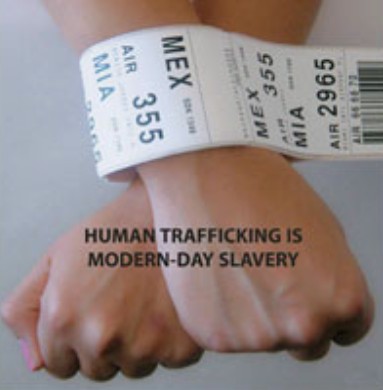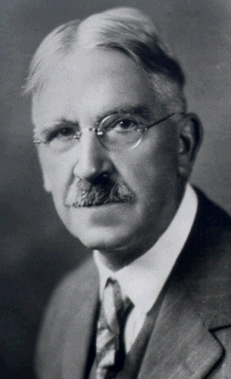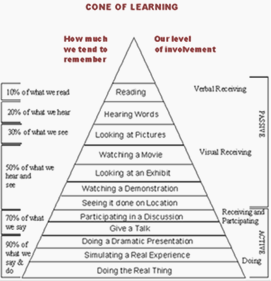Social Justice:
It seems to me that social justice is always going to be a fight in the education system. Teachers are always going to be faced with problems of society. Especially these days when the whole world seems to be going hay-wire, injustices seem to be on the rise and it's the educator's that society seems to look at for the answers. Teachers have come along way from teaching reading, math and writing in the days of the one-room school house. Children come in all shapes and sizes and from all different cultures. I believe that it's up to the community as a whole to help change the education system of today. It seems that there's a group of people that are making all the decisions for the rules and regulations of the educational system yet they are not in these schools day in and day out dealing with the actuality that the system is not working.
One of my major issues with the education system is teachers that are waiting there retirement and just letting children that need help slip threw their fingers.Most of the kids that are slipping threw the cracks just need good people in there life to help them stop heading in the direction that their heading. There are so many children with learning disabilities that just need an extra nudge from a supportive figure in their life, to give it another try or not to give up.
There are more of my family members with learning disabilities then there are with out and I have witnesses both aspects of teachers caring and teachers not caring and what happens to the child. I am going to talk a little about two of my cousins. Both of them have dyslexia and were having trouble in school right from the beginning. This is a story to show how children need a whole community to support them in troubled times. We begin with cousin A and Cousin B!
Cousin A was in a school where they took the time to really understand where cousin A was having trouble, but cousin B was in a school where they did not pay much mind to why cousin B was not understanding the curriculum and just kept passing him on, I don't know maybe hoping the next teacher would catch his problem... So lets move up to today, Cousin A is in college and doing great because cousin A had gotten the right support to help her fight her disability. . Cousin B has dropped out of school and is in and out of trouble because he did not get the support he needed from his educators. His parents did the best they could helping him when he was out of school but if he's not getting the same from the teachers then it's a up hill battle. I am not sure how a person who has promised to educate young minds could allow children to just get lost in the wind.
I guess that I have not been in a situation like that before so I can not really give an opinion on those teachers. But I watched my mother graduate with honors from college in her fifties with severe dyslexia. She just never gave up, she would get book on tape or stay with the teachers anything she had to do, plus her teachers were great. How are children suppose to have the courage to never give up if their educator's are giving up on them.
Interview:
I did my interview over the phone with a person who grew up living with a learning disability at a time when nobody really knew what learning disabilities were.
I explained that we need to interview someone about the social justice issue that we were discussing in our finale blog. The questions that I had were about living with learning disabilities.
Me> How was it like growing up with a learning disability?
Speaker> It was tough! What you have to understand is that back when I was young they really didn't know what learning disabilities were. Well at least not like today. They just figured that you were not trying your best and not really paying attention to the teacher. I can remember sitting in class and really trying to pay attention to what the teacher was teaching and I just could not comprehend what she was saying.
They use to make me sit at the kitchen table with no noise and read my homework over and over again. I would sit at the table and read say 30 pages. When I was done your mother would ask me questions about what I read and I would have no Idea. Even if I read it over I still would have a hard time comprehending what I was reading.
(She spoke about how she really didn't know how to study for quiz's and exams, and not understanding the homework or classroom lessons. That she started wondering why she was even there.)
Me> How did you make it threw high school?
Speaker> Eventually they realized that something needed to be done when I was going to fail out of school. I would get my report card and my conduct and effort grades were always B's or better, but the over all average would be a D because of bad test scores. So they decided to move me to the alternative school for a smaller class room setting and more one on one time with the teacher. This was a better situation for me, it was a slower paced class and that's what I needed. I didn't graduate on time but I graduated and that's all that matters.
As far as the kids I went to school with I was not really bothered. I grew up the youngest girl of seven with 5 brothers so if anyone wanted to make fun. They usually ended up with a fat lip by me. I learned from my brothers and sister not to let people put me down. I am not saying that beating up people is the right thing to do it's just what I did ( not often but).
For the rest of the interview we spoke about her life today. Today she is reading much better then when she was younger. She did say that when she learns to do something new, She will repeat the same steps she took the first time she learned and continue every time after. Schedules and organization is what helps a lot.
I learned a lot about what it was like twenty years ago for children with learning disabilities and the education system. It's amazing how today it's the total opposite. If a kid is not responding to the teachers style of teaching then they must have a disability. This is such a close issue to me because it touches my family......
Educational Model:
My own personal teaching model is a interactive learning environment. There should be tons of activities and manipulative toys for children to learn from. I do not believe that teachers should just stand in front on a class and lecture. It's boring for the students and it's has to be boring for the teacher at least for me ti would be. I believe that students should work together more often and share ideas with one another. There should be more group projects so they can learn from each other. I am doing a presentation for one of my other classes and it's fun to collect different information and then get together share what we have learned. I feel that grades k-12 should be doing the same kind of learning. I believe I have already talked about kids and there energy in another discussion from this class. But I am going to express my feelings on it again. Children have so much energy as it is, then they are expected to sit in chairs and listen to a adult talk for just about 5 hours or so. No wonder these kids are tuning them out, they probably hear 2-3 words out of every other sentence. I know when I am in a class that's boring I only hear about 1/3 of what the teacher said I am too busy counting the minutes till I can leave.
The schools are so focused on these standardize tests that we are losing site of what education is all about. Education is suppose to prepare our children to be future leaders, teachers, bus driver or what ever. The problem is that they are only being taught what is on these tests and there's no time for anything else. That's not OK, kids need creative expression and time for their minds to absorb all of the information that they are being taught, they are not robots they are children. I find my self thinking of ways that I can have creative time and still be preparing my students for the tests. The education system is eliminating a lot of key classes that children should experience, can you imagine if you never had art class or music theory or gym for that matter. I feel that the education system is heading down a bad road and needs change immediately. Maybe the administrators need to take a closer look....
Another Issue:
Another issue that I have is the misleading information that U.S students are taught about U.S. History. I can remember when I was in high and school and middle school they did not teach us about the Indians and how they were nearly wiped out from the European settlers or how bad slavery really was. I don't think that racism was ever really brought up. I am a true believer that as children we should be taught the truth about this country's history good or bad because that's the story of us.If we don't know the truth, then how can we make it better.
I promise that as a teacher I will do my best to keep my classroom and active learning environment for all who come threw the door.







